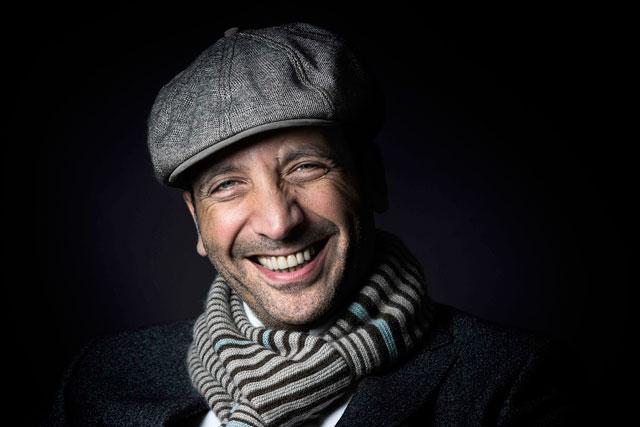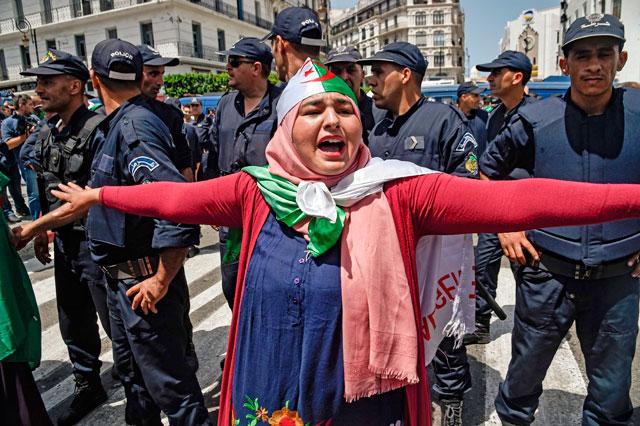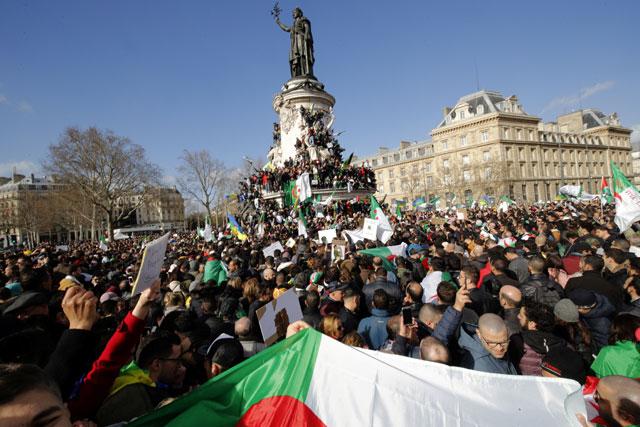You are here
‘A Prophet’ creator takes on France’s war in Algeria
By AFP - Jan 13,2019 - Last updated at Jan 13,2019

In this file photo taken on October 28, 2015, French scriptwriter Abdel Raouf Dafri poses during a photo session in Paris (AFP photo)
PARIS — One of France’s most celebrated screenwriters is taking on its biggest taboo, the bloody conflict in Algeria, in a new war film.
Abdel Raouf Dafri told AFP that he had been itching for years to broach the delicate subject.
The writer of the Oscar-nominated ‘‘A Prophet’’, and the Emmy-winning television series ‘‘Braquo’’, has Algerian roots but was born in the French port of Marseille, where many former French ‘‘pied noir’’ colonists who were forced to flee Algeria settled.
The film’s title ‘‘May an impure blood...’’ is plucked from the most controversial line in the French national anthem, ‘‘La Marseillaise’’, which ends ‘‘...water our fields’’.
Dafri cleverly turns it around to refer to ‘‘the blood of the colonised’’,who suffered under the French, which ‘‘just goes to show how universal our national anthem is’’, he argued.
His story, however, centres on a group of French conscript soldiers sent on a ‘‘grotesque mission that none of them want to go on’’.
‘‘Like a lot of military operations, it serves little or no purpose,’’ said Dafri, who also scripted the acclaimed ‘‘Mesrine’’ gangster films.
‘‘When you make a film about World War II, you know who the good guys are,’’ the writer said.
‘‘The war in Algeria is more complicated, because nobody was nice.’’
Torture
The film opens with a brutal interrogation of three Algerian villagers — the sort of violent questioning that the founder of France’s far-right National Front Party, Jean-Marie Le Pen, said he proudly took part in.
It was only last year that the French government finally acknowledged that these interrogations were part of an official system of routine torture during the bloody seven-year war, before Algeria declared independence from France in 1962.
‘‘All the violence which I show in the film happened in reality,’’ Dafri insisted.
Yet, the film’s lead character — a tough non-commissioned officer who has survived France’s earlier colonial defeat in Indochina — is inspired by the rather more sympathetic figure of Roger Vandenberghe.
Vandenberghe, a tragic and highly decorated hero of that earlier conflict, died aged 24 in Vietnam.
‘‘I wanted a hero, but not a Rambo,’’ the first-time director said. ‘‘A man who was both fragile deep down but who was also capable of cruelty.’’
With France and Algeria still unable to agree on a death toll more than half a century after the war ended, Dafri insisted that he wanted ‘‘to be as honest and as just as possible’’.
After much research, he borrowed a phrase from the ethnologist Germaine Tillion as his guiding light.
Tillion was a French resistance hero and concentration camp survivor who secretly met Algerian guerrilla leaders in a bid to end the bloodshed.
She tried to win hearts and minds as the military stepped up their repression.
French-Algerian identity
‘‘When in 1828 our ancestors crossed the sea to seek revenge for a slap with a fly-whisk, Algeria was an archaic country, and France was too,’’ Tillion wrote.
The quotation refers to how France used a clash between the country’s former Ottoman ruler Hussein Dey and the French consul in Algiers as a pretext to invade the country.
Tillion tried to bring health services and education to Algeria’s ‘‘pauperised’’ indigenous population as the war raged. She was among the first to condemn the systematic torture of suspects.
To understand the Algerian war, ‘‘you have to go back to the beginnings of the history of France and its principal colony’’, Dafri said.
But writing the film he also had to confront his own personal history and identity as the French-born son of Algerian emigrants.
‘‘I wanted to understand why my parents brought me into the world in France in 1963’’ — a year after the war ended — ‘‘when their own country had just been liberated from its oppressors”.
Dafri said he is dedicating the film, which will be released later this year, both to the Algerian people and to the young French conscripts who were forced to serve there, ‘‘thrown into a disaster’’ that was not of their own making.
According to the French historian Benjamin Stora, conscripts made up two-thirds of the 23,000 French soldiers killed in Algeria. Estimates of the number of Algerians who died ranges from around 1 million to between 300,000 and 400,000, 3 per cent of the local population at the time.
Dafri is less forgiving of those in power. ‘‘The Algerian people suffered from colonisation and then independence led by corrupt men who are still in power,’’ he said.
‘‘I don’t want people to say that I have taken sides when they see the movie,’’ Dafri said. ‘‘I do not have a side to take: France is my country.’’
Related Articles
ORAN, Algeria — The Catholic Church on Saturday beatified in Algeria seven French monks and 12 other clergy killed during the coun
ALGIERS — Huge numbers of Algerians protested on Friday in the capital, keeping up their push for a political overhaul despite a spate
ALGIERS — President Abdelaziz Bouteflika was expected to land in Algeria on Sunday after leaving Geneva where he has spent two wee














